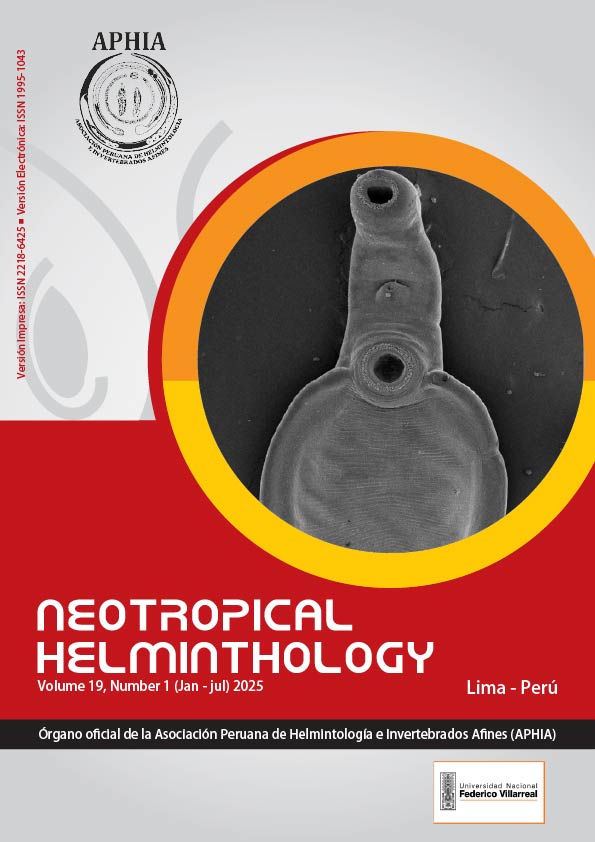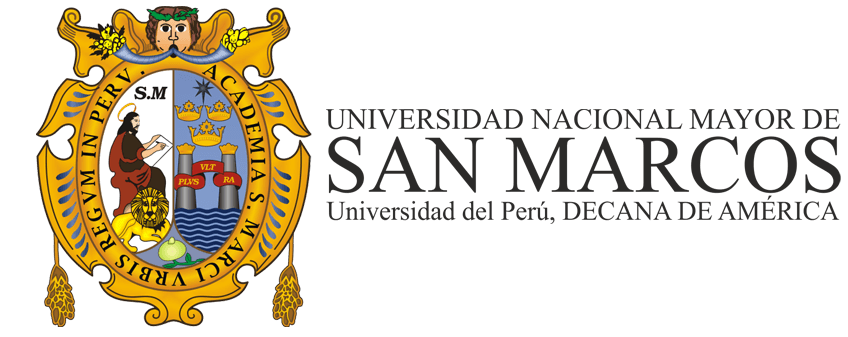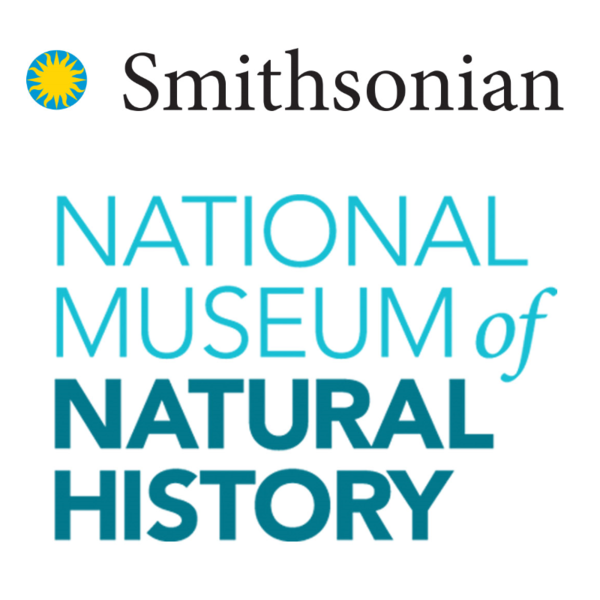EFFECT OF SOAPBERRY PAULLINIA CLAVIGERA (SAPINDACEAE) ON HATCHABILITY OF FASCIOLA HEPATICA EGGS
DOI:
https://doi.org/10.24039/rnh2008221137Keywords:
bioassay, eggs, Fasciola, hatchability, Paullinia, phytochemical screeningAbstract
Employment of plant extracts represent an alternative to integrated parasite management in Public health, due to its low cost and low impact on environment to conserve biodiversity. Current research aims to determinate the effect of Amazonian plant soapberry Paullinia clavigera Simpson (Sapindaceae) on hatchability of Fasciola hepatica L. (Trematoda: Fasciolidae) eggs. Eggs were obtained from cattle
processed at the Yerbateros abattoir, Lima, Peru. A phytochemical screening was done and hexane,
chloroform and hydroalcohol extracts of cortex and leaves of P. clavigera were prepared. Bioassays to
determinate the effect of soapberry on hatchability of eggs were performed; those were incubated on extracts at 22°±2ºC during 21 days and finally exposed to light for 12 h. Significant differences between number of F. hepatica eggs exposed to each concentration in bioassays did not exist. The hatching of F. hepatica eggs was only affected by hexane extract of the cortex of P. clavigera to two higher concentrations. Toxicity observed on hexane extract of cortex of P. clavigera was noted in the presence of triterpenes, flavonoids and quinones.
Downloads
Published
How to Cite
Issue
Section
License

This work is licensed under a Creative Commons Attribution-NonCommercial-NoDerivatives 4.0 International License.
OBJETO: El AUTOR-CEDENTE transfiere de manera TOTAL Y SIN LIMITACIÓN alguna al CESIONARIO los derechos patrimoniales que le corresponden sobre la (s) obra(s) tituladas: xxxxxxxxxxxxxxxx, por el tiempo que establezca la ley internacional. En virtud de lo anterior, se entiende que el CESIONARIO adquiere el derecho de reproducción en todas sus modalidades, incluso para inclusión audiovisual; el derecho de transformación o adaptación, comunicación pública, traducción, distribución y, en general, cualquier tipo de explotación que de las obras se pueda realizar por cualquier medio conocido o por conocer en el territorio nacional o internacional.
REMUNERACIÓN: La cesión de los derechos patrimoniales de autor que mediante este contrato se hace será a título gratuito.
CONDICIONES Y LEGITIMIDAD DE LOS DERECHOS: El AUTOR-CEDENTE garantiza que es propietario integral de los derechos de explotación de la(s) obra(s) y en consecuencia garantiza que puede contratar y transferir los derechos aquí cedidos sin ningún tipo de limitación por no tener ningún tipo de gravamen, limitación o disposición. En todo caso, responderá por cualquier reclamo que en materia de derecho de autor se pueda presentar, exonerando de cualquier responsabilidad al CESIONARIO.
LICENCIA DE ACCESO ABIERTO: El AUTOR-CEDENTE autoriza que manuscrito publicado en La Revista Neotropical Helminthology permanece disponible para su consulta pública en el sitio web https://www.neotropicalhelminthology.com/ y en los diferentes sistemas de indexación y bases de datos en las que la revista tiene visibilidad, bajo la licencia Creative Commons, en la modalidad Reconocimiento-No comercial- Sin Trabajos derivados –aprobada en Perú, y por lo tanto son de acceso abierto. De ahí que los autores dan, sin derecho a retribución económica, a la Asociación Peruana de Helmintología e Invertebrados Afines (APHIA), los derechos de autor para la edición y reproducción a través de diferentes medios de difusión.


 Numero 2 Volumen 19 - 2025 (versión Anticipada)
Numero 2 Volumen 19 - 2025 (versión Anticipada)














































